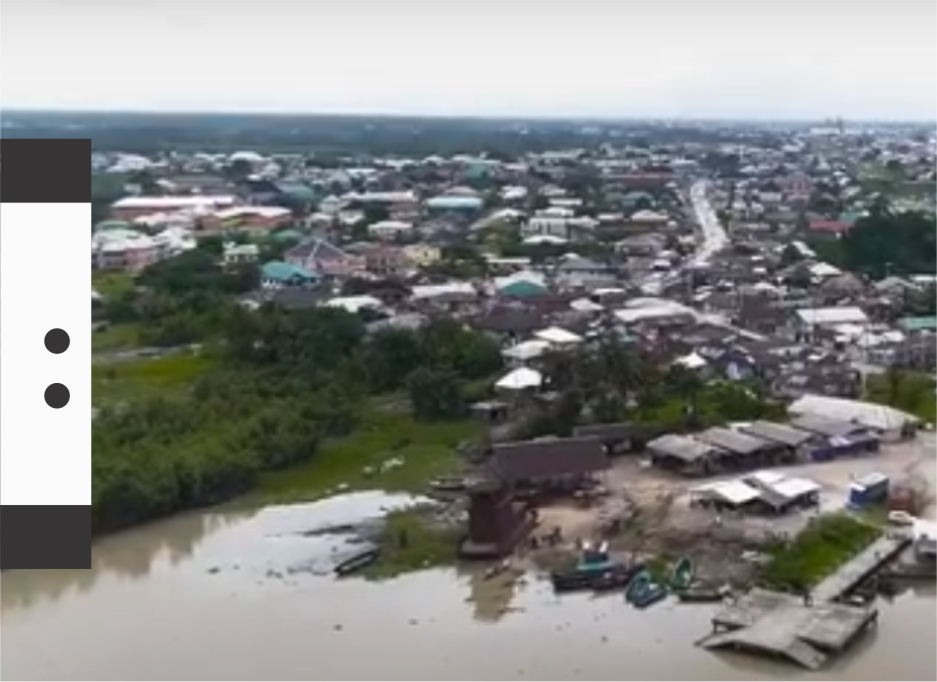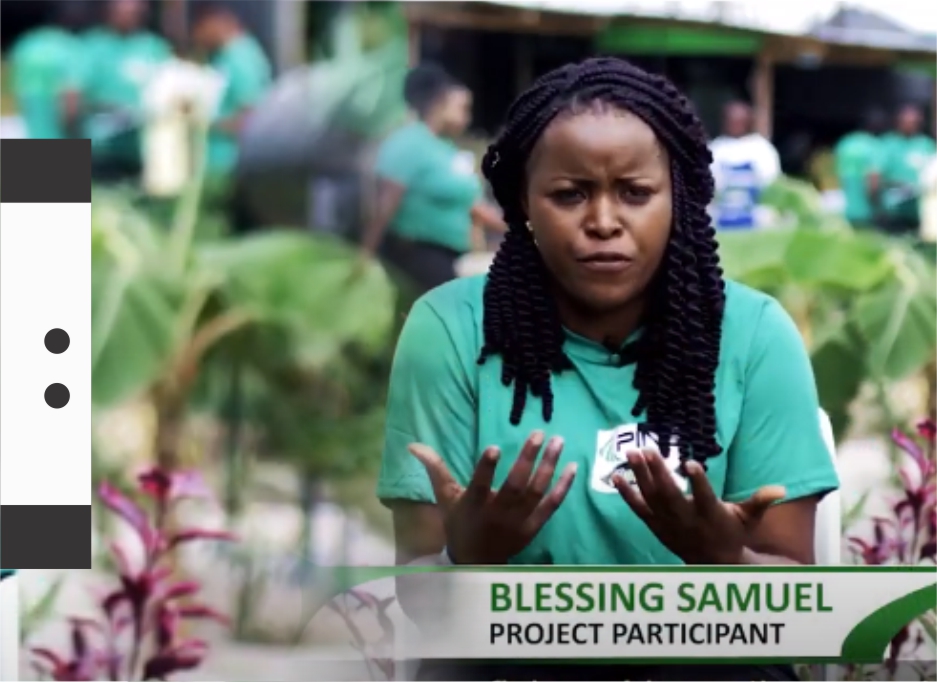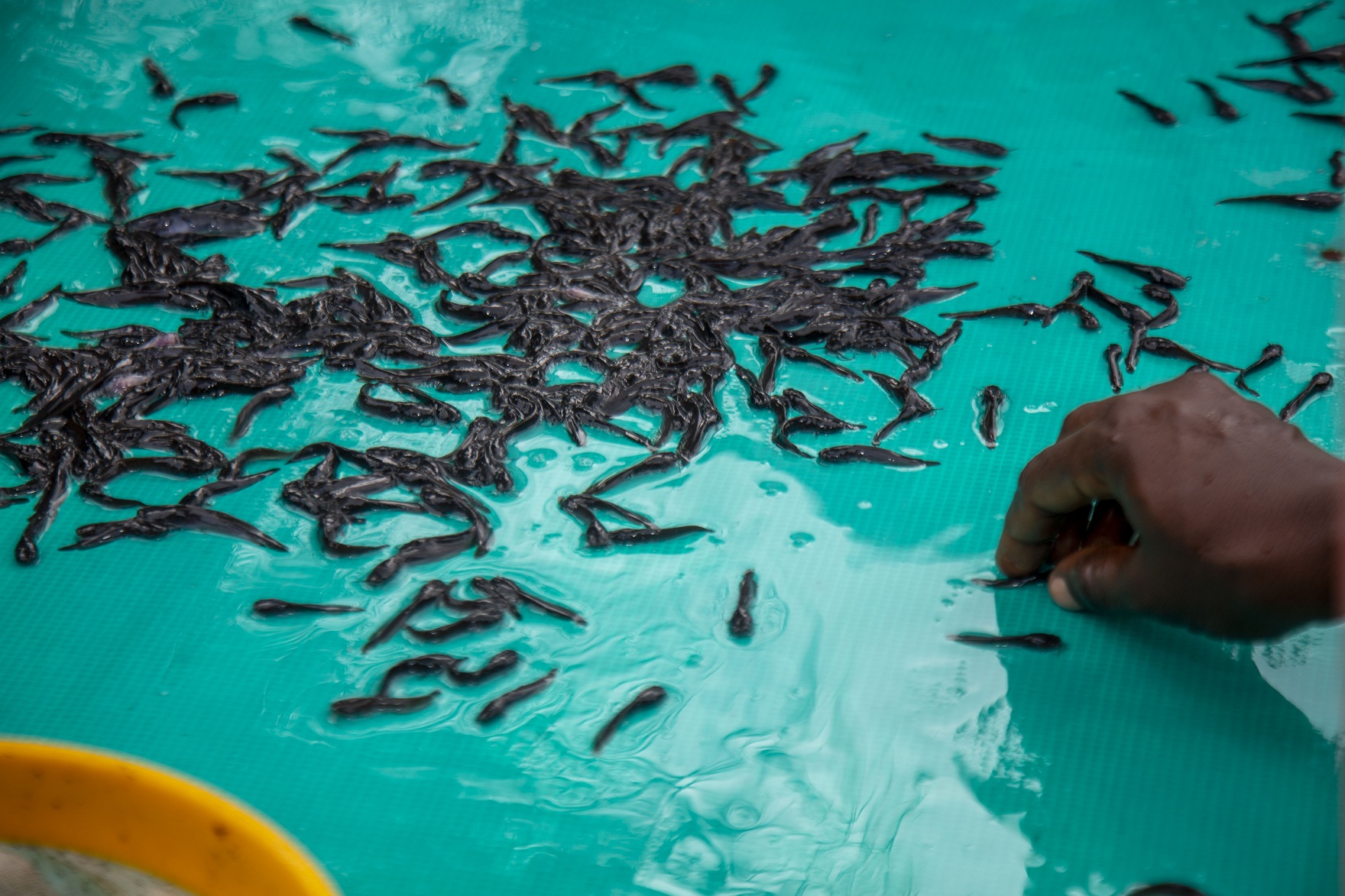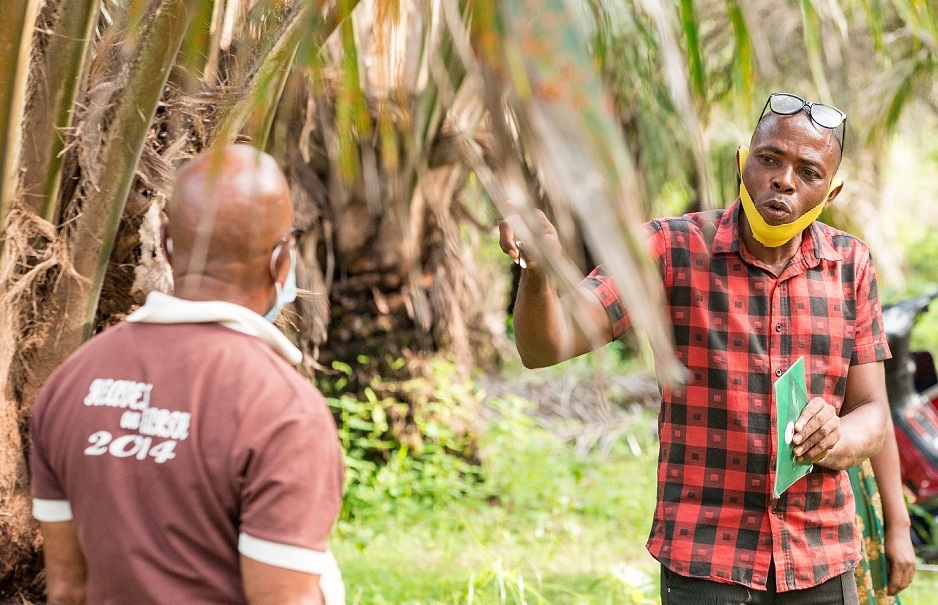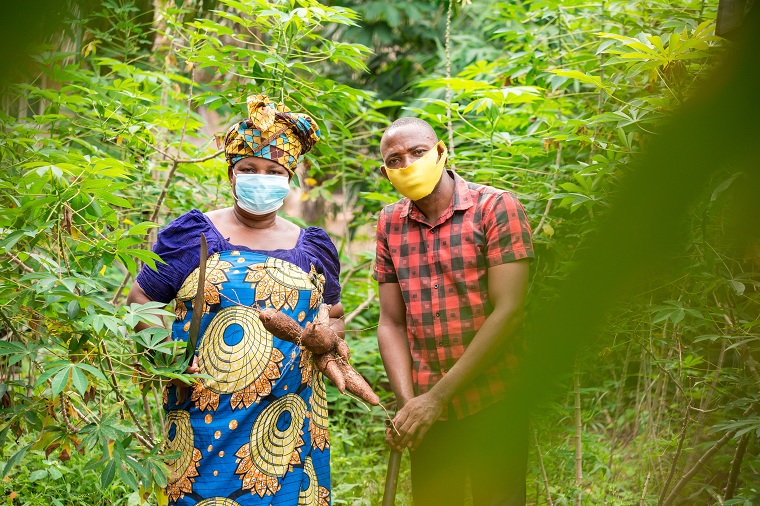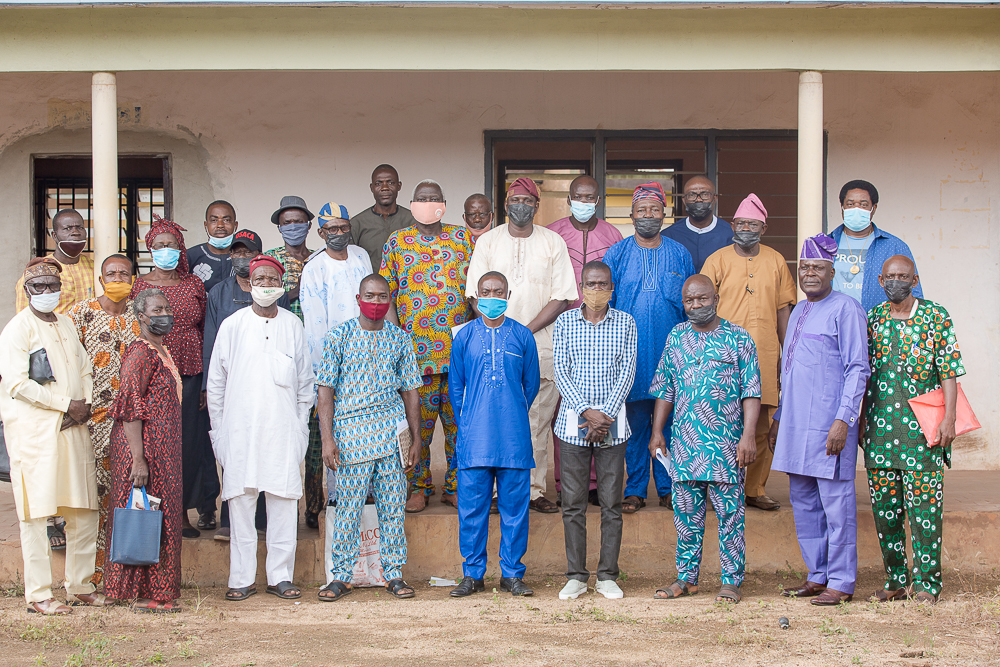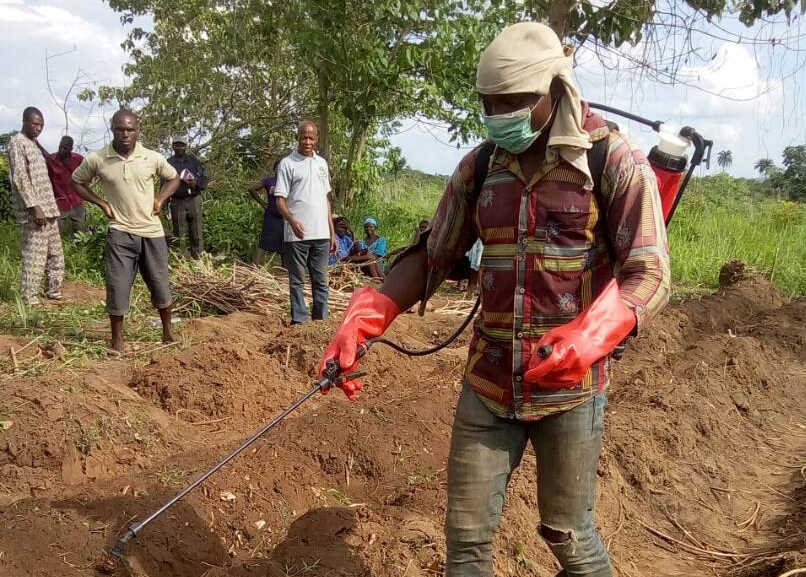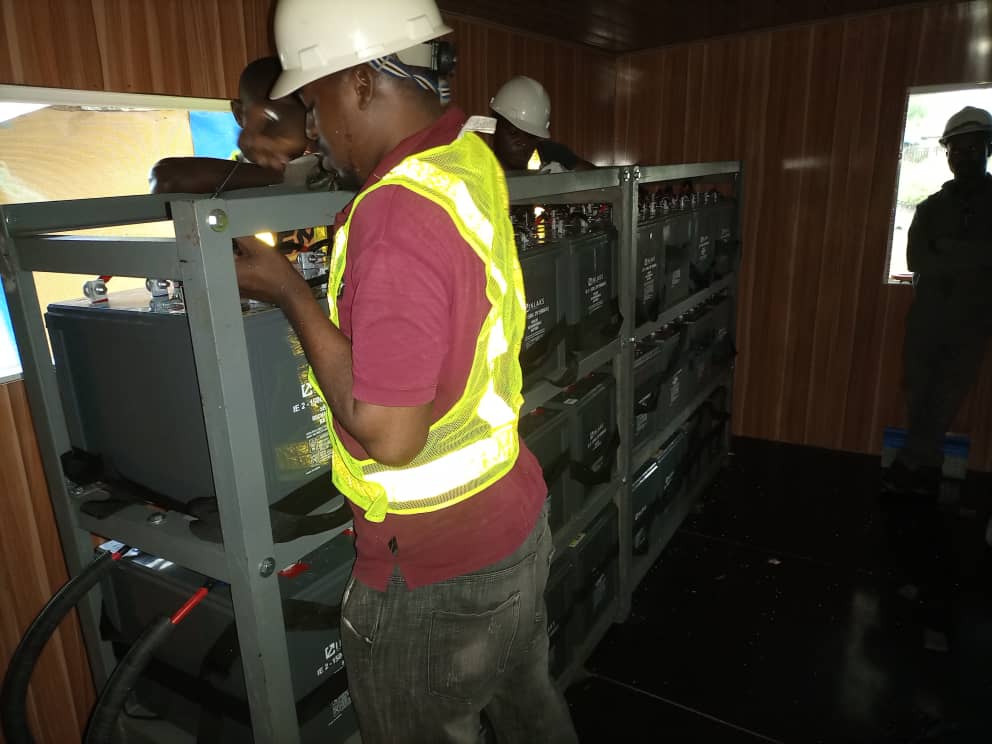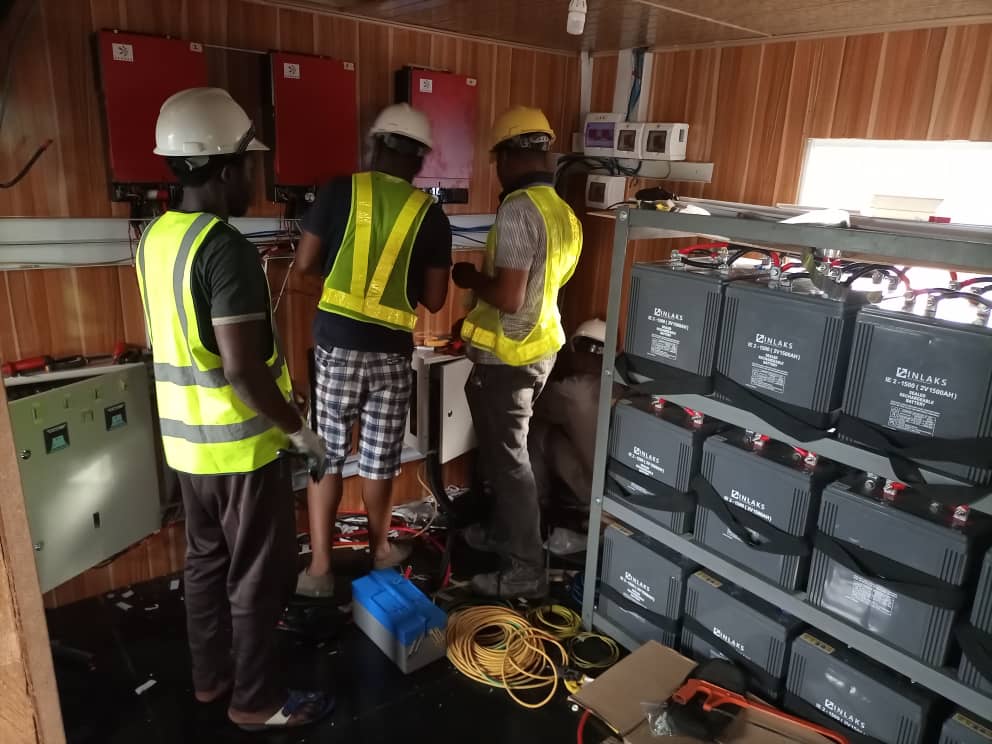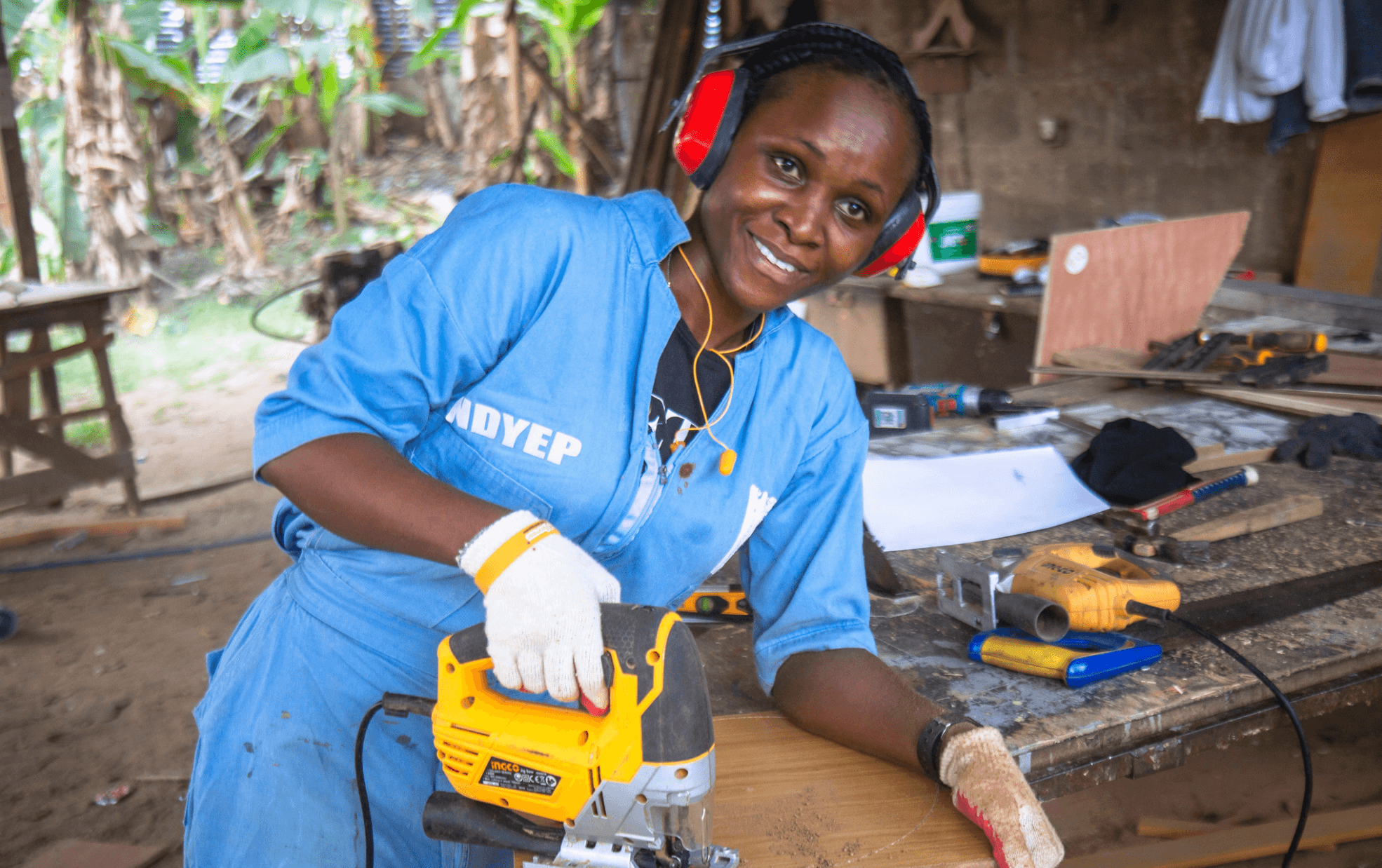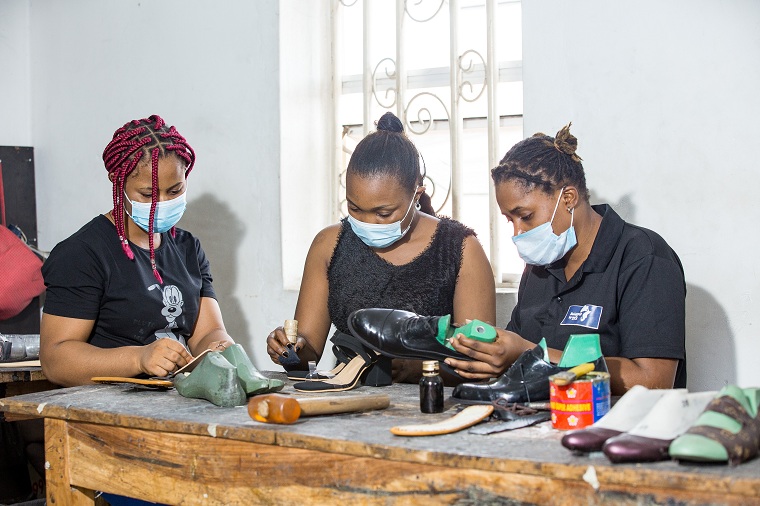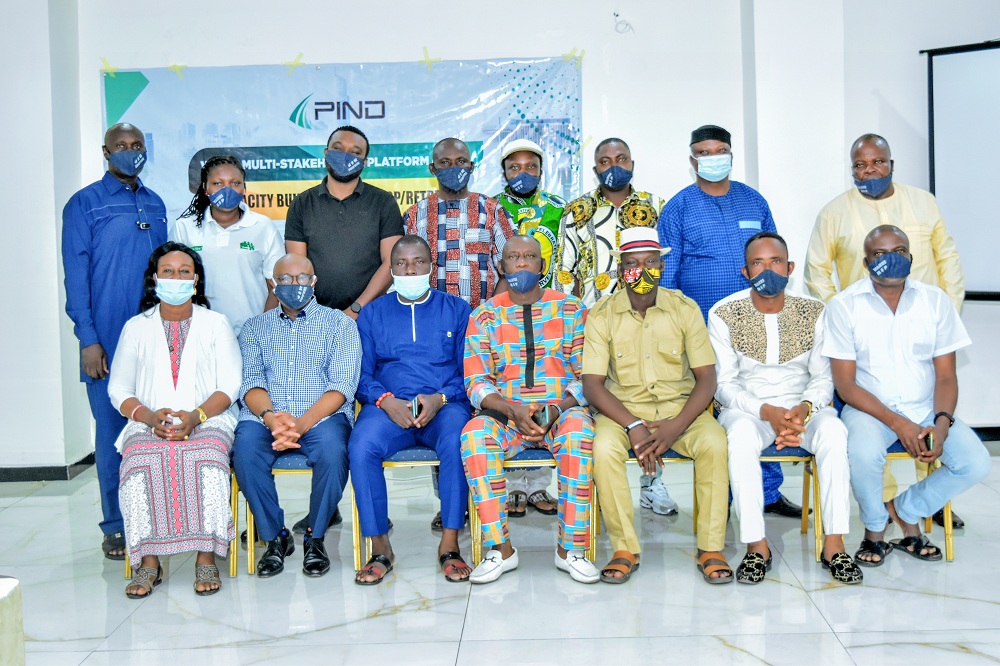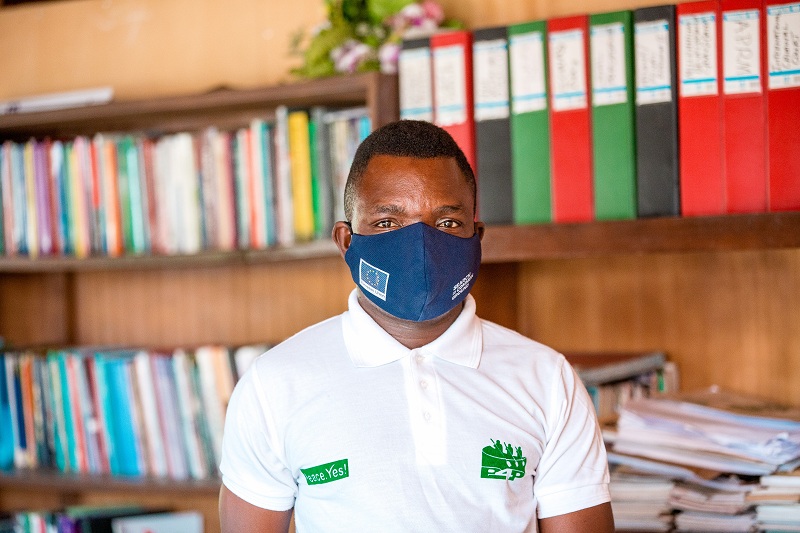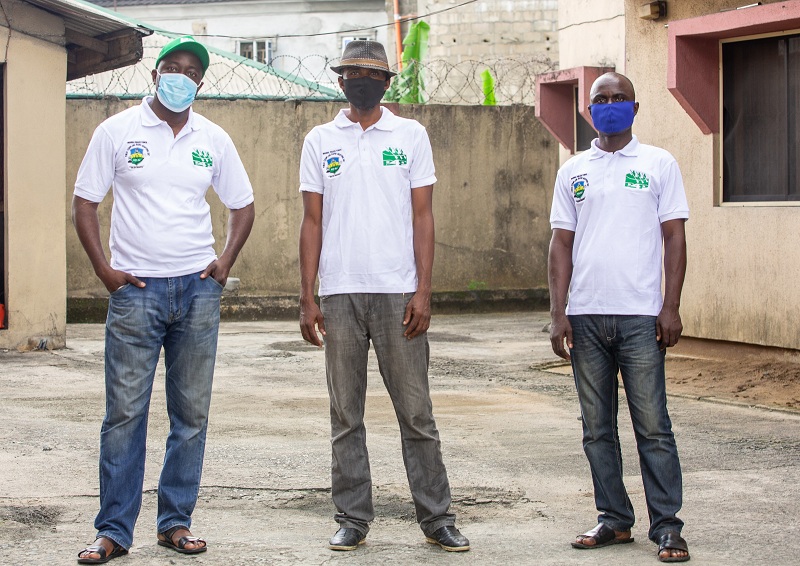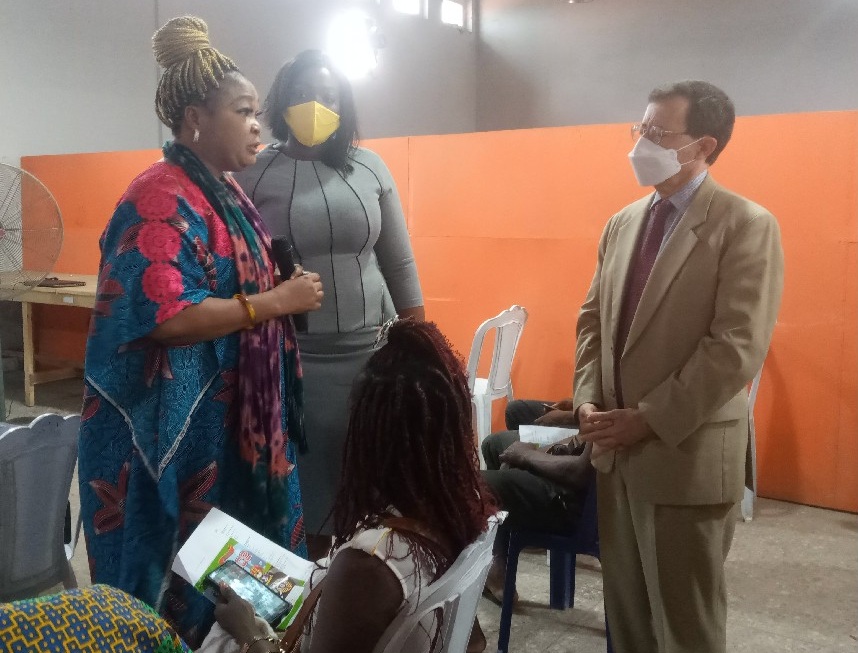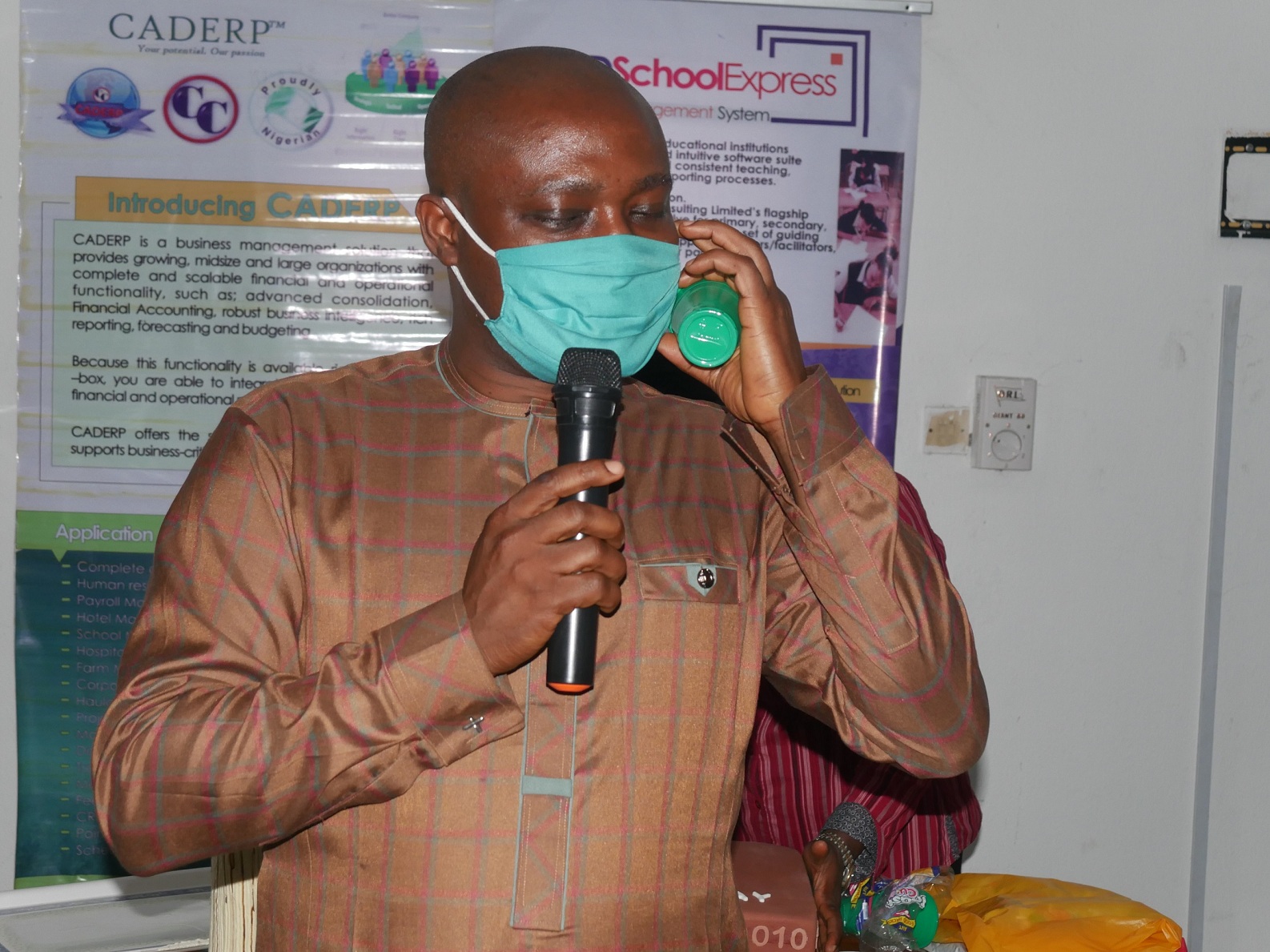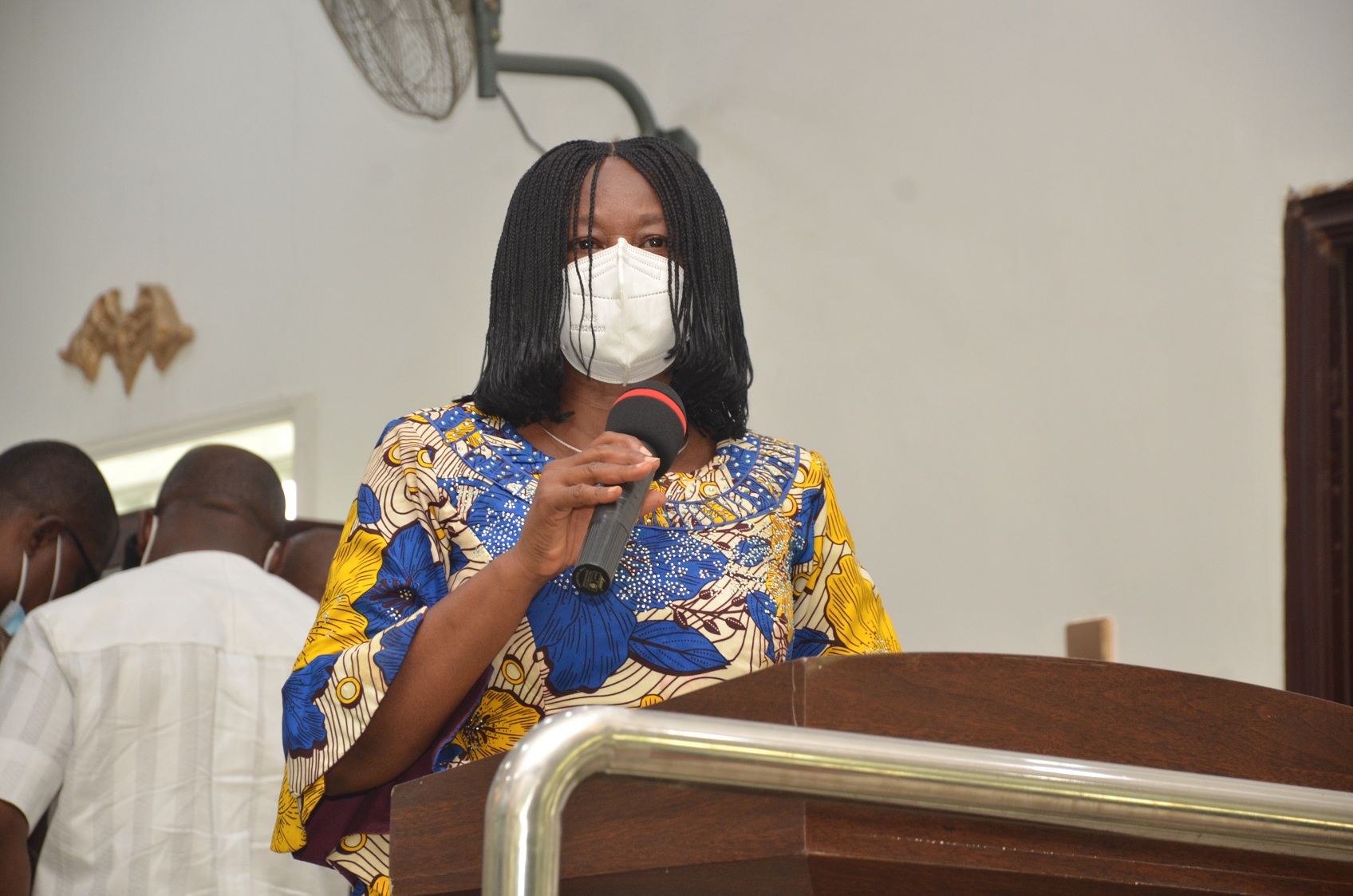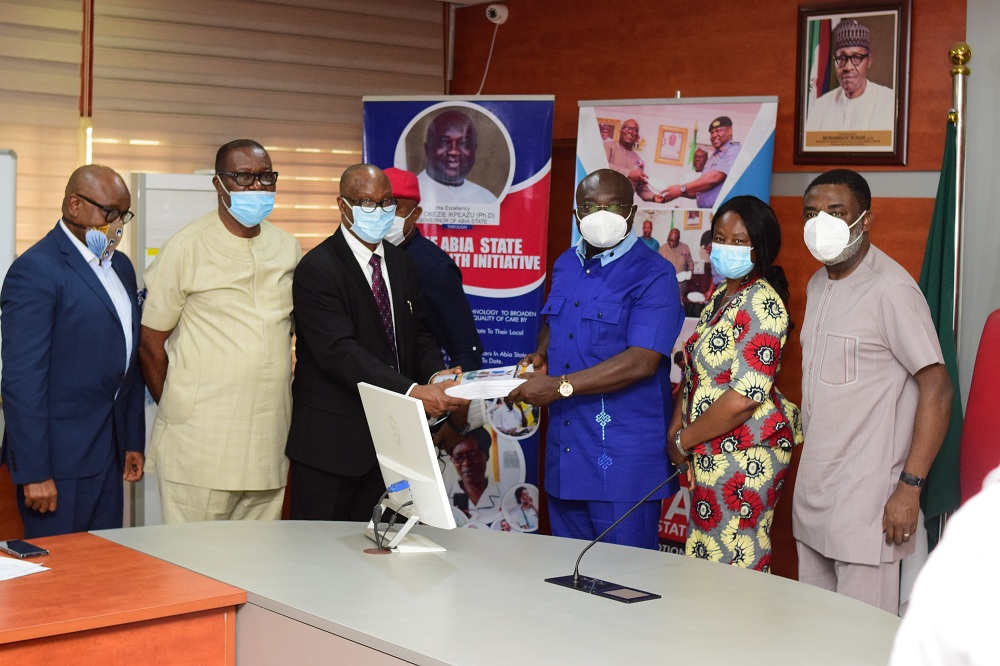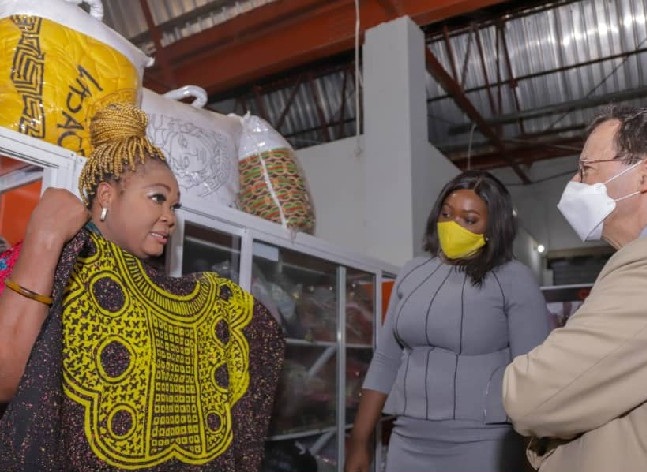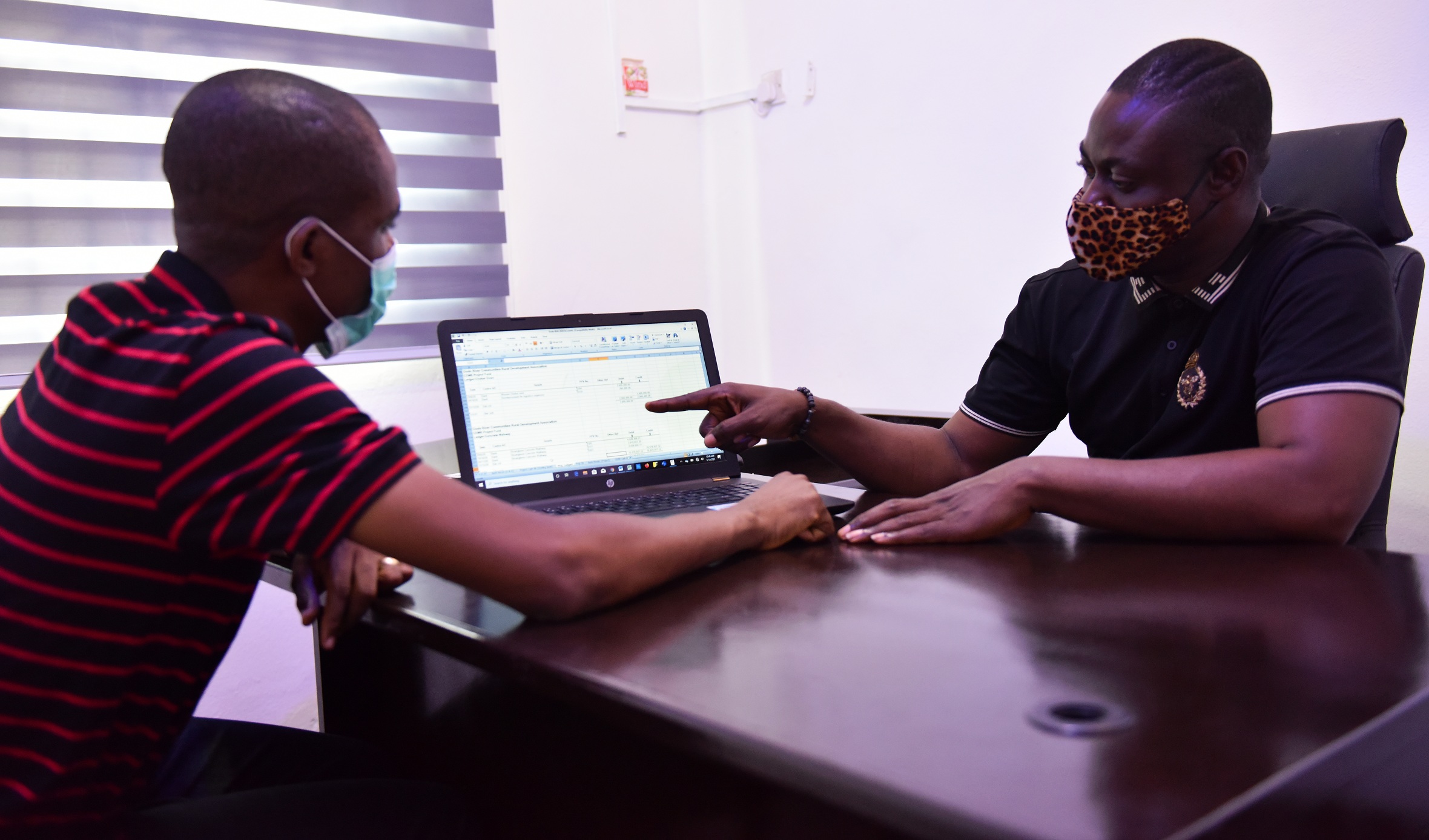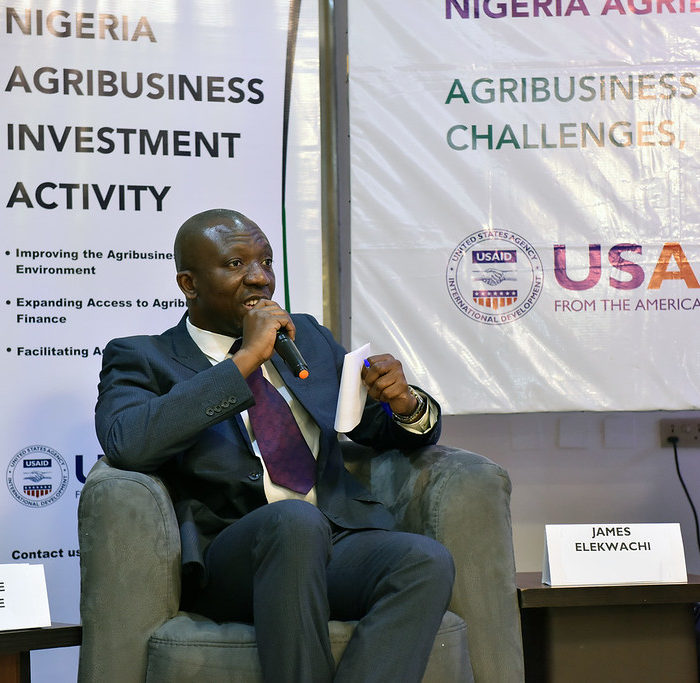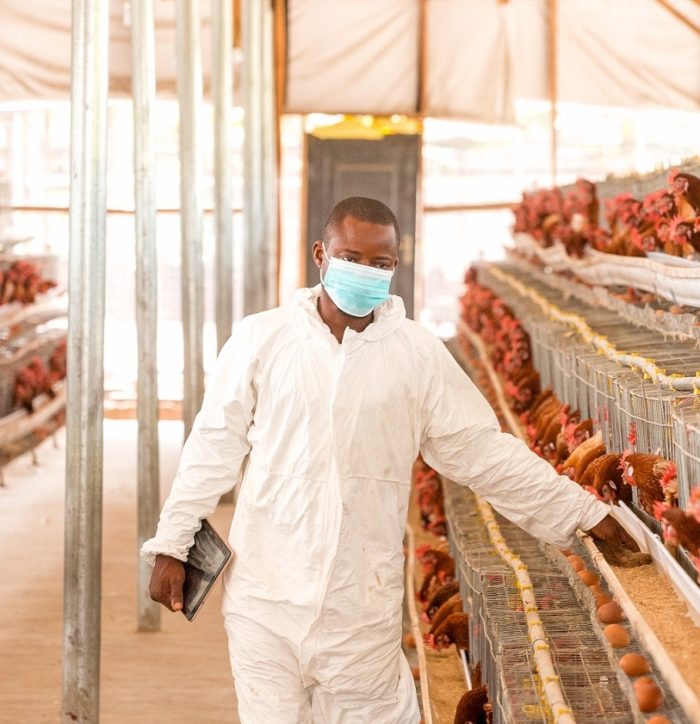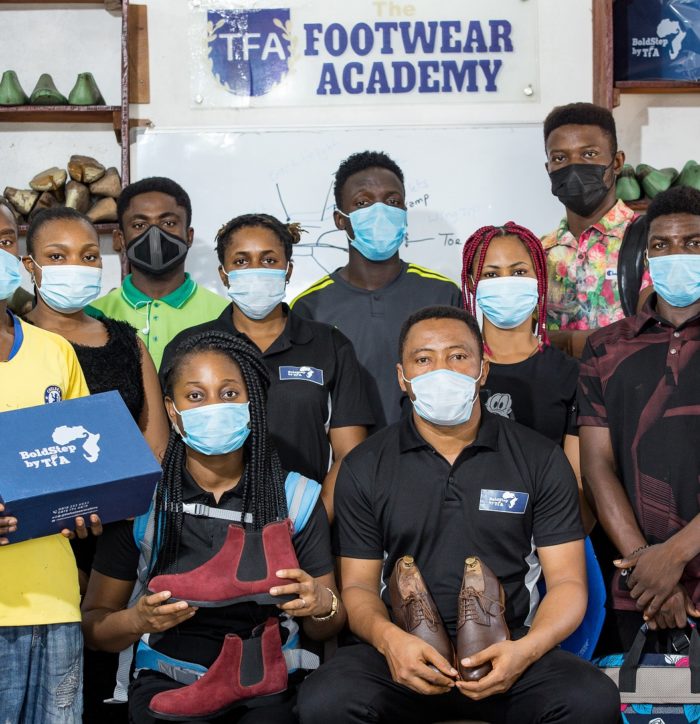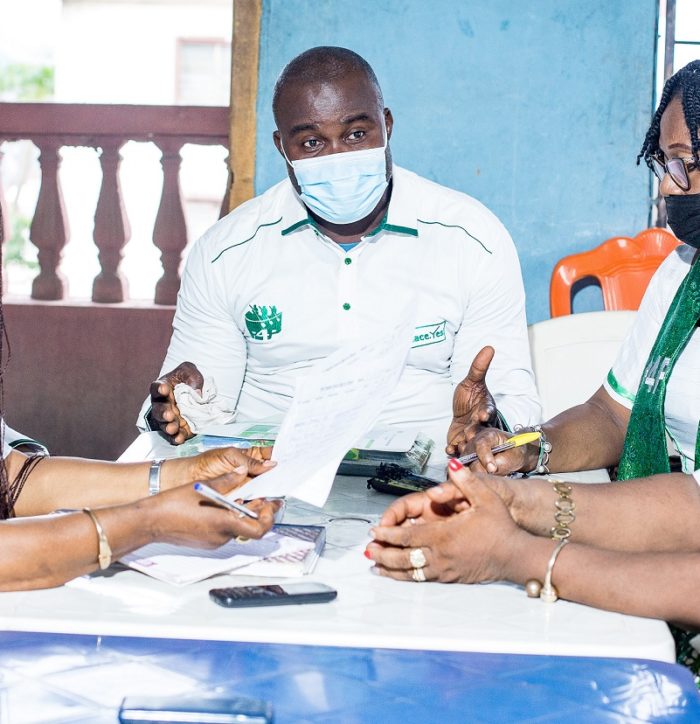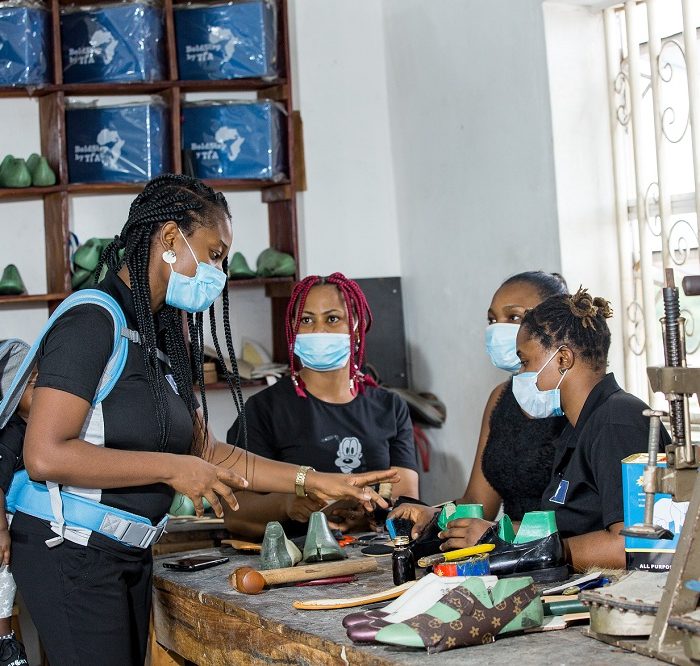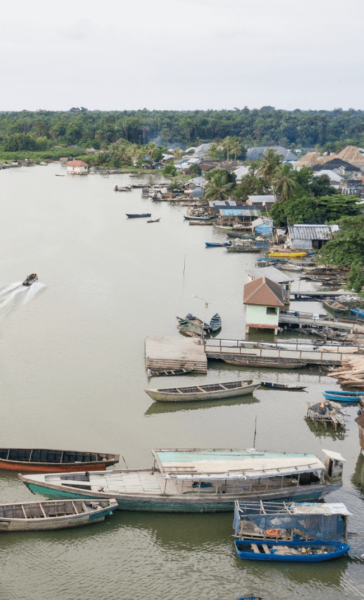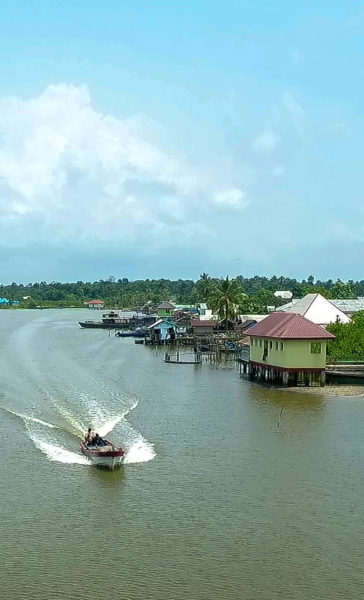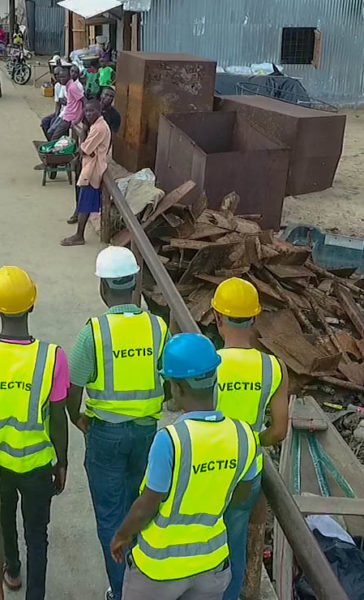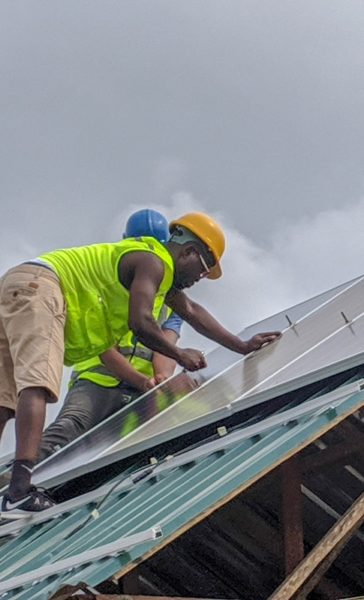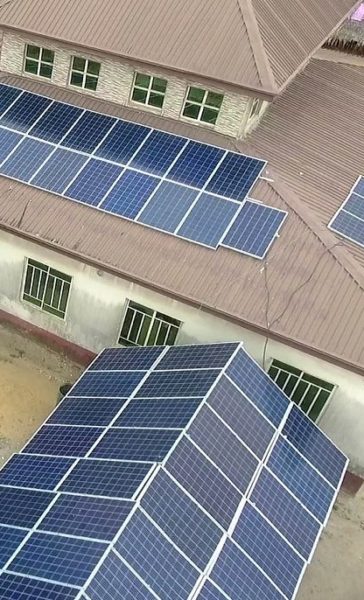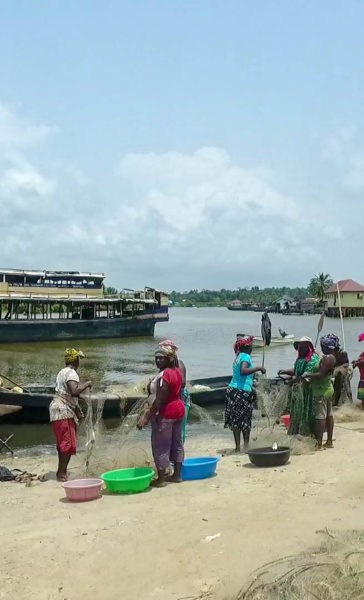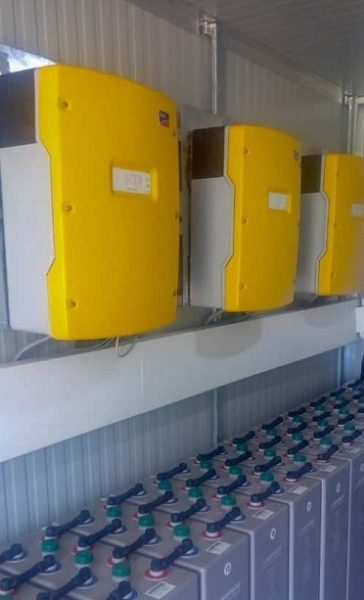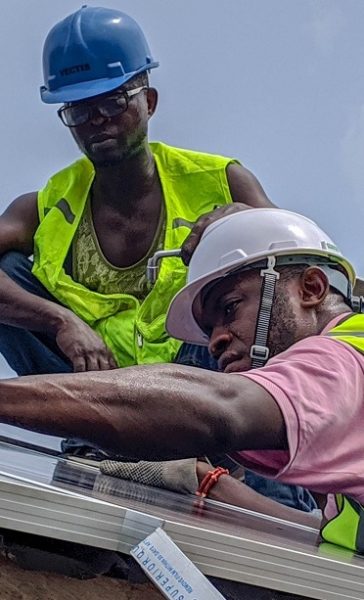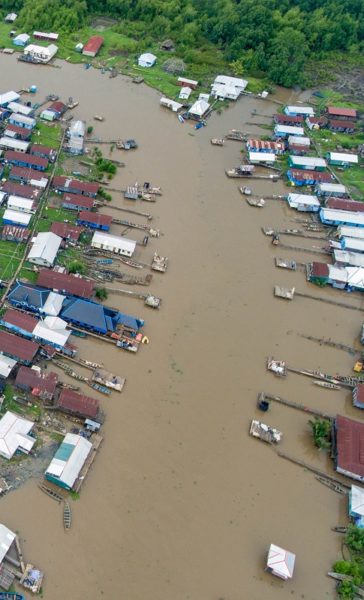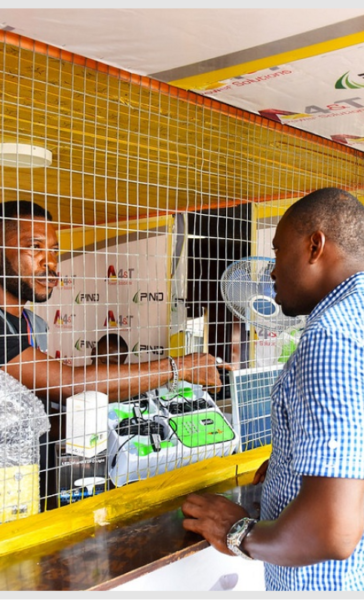We are creating strong and stable Niger Delta Communities
Learn more about who we are and what we do

Chairman, Board of Trustees
Rick Kennedy
Executive Director
Dara Akala
Ten (10) years on, PIND is a gamechanger for the Niger Delta region
2020 was not all about surviving the traumatic emergence of COVID-19 for us; rather, it was a watershed year for PIND (Foundation for Partnership Initiatives in the Niger Delta). In our ongoing efforts to reduce conflict and poverty, we hit the momentous ten-year (10-year) milestone of existence and implementing life-changing, life-uplifting programs in the Niger Delta; kicked off our third five-year phase of funding with a new 2020-2024 strategic plan; and responded to the impacts of a
pandemic...
TEN YEARS IN THE NIGER DELTA: OUR SCORECARD
The Path to Prosperity is Built on Opportunity. Partner with Us in Changing Lives
Launched in 2010, our work has reduced poverty, fostered stability, powered coastal communities, nurtured youth employment, built organizational capabilities, and influenced development policies and practices.
RECOGNITION & AWARDS
Public Appreciation: Commended by the Nigeria Center for Disease Control (NCDC) for support to the battle against raging COVID-19 pandemic to safeguard lives and livelihoods…
Award of Excellence: from Bayelsa Non-Governmental Organization’s (BANGOF) development initiative in recognition of our outstanding support to BANGOF and non-governmental organizations (NGOs) in the Niger Delta.
DCED Industry Certification 2019: certified by the Donor Committee for Enterprise Development (DCED) as an International Market Development Champion in 2019.
Award Certificate 2020: Recognized as one (1) of the top 100 social media influencers for social good by hethe Social Media for Social Goods Award Africa.
Certificate of Award 2012: from Niger Delta Achievers’ Merit Awards (NDAMA) for launching the most supportive concepts for the region.
Peacebuilding Recognition: by the Executive Governor of Delta State in recognition of PIND’s invaluable leadership in promoting peace in the state.
Gender Partnership Recognition Award: from the Office of the Vice President of Nigeria for contributions towards ending GBV (gender-based violence) in Nigeria.
Nigeria Energy Awards: in recognition of its work in the area of clean energy, energy efficiency, and sustainability in energy efficiency.
Digital & Media Outreach:
Positive mentions in the media
People reached on social media
New visitors to our website
CAPABILITY BUILDING:
The last decade has brought about capacity building through systemic changes in:
Approach
There is increasing realization and acceptance of the market-driven approach and a need to reduce distortions and lack of sustainability of direct involvement.
Fish Feed Market
Large fish feed companies face competition from many smaller firms that are springing up due to increased demand for feed arising from greater use and more market entrants.
Growth and Development Strategy (GDS)
The Cross River State GDS facilitated by us is becoming the model for development planning for the states of the Niger Delta, and there is a strong push to base a revised regional master plan on the state plans.
Input Companies
More input companies are leading the extension of agricultural knowledge through demonstrations as part of their sales and marketing strategy.
Paradigms
Some states are beginning to realize their role is creating an enabling environment for private sector players to invest in.
Peacebuilding
Grassroots movements are helping to build social capital around peace and conflict resolution.
Technology Adoption
Improved mechanization of the harvesting and processing of palm oil is increased capacity in fabrications, sales, and maintenance of SSPE (small-scale processing equipment).
Transparency in Governance
States are now publishing their annual budgets online and making that information more readily available to citizens.
Reach
Our Lessons and Insights
PIND gained first-hand insight and lessons about successful peacebuilding and economic development programming in the region through ten (10) years of implementing projects that supported partners and key actors to empower people, catalyze new practices, and spread change across the nine (9) states of the Niger Delta. The practices captured below played a significant role in the ability of our partners and the market actors in the sectors we are intervening in to adapt quickly to withstand the shock of a pandemic in 2020, accounting for the performance shared in this annual report.
We learned about:
STIMULATING RESILIENCE
2020 Progress Against Targets
Reach
59,710
Target 52,500
Productivity & Sales
38,449
Farmers and MSMEs with increased productivity and sales.
Target 30,400
Net Combined Income
NGN 11.4 Billion
Net additional combined income of farmers and MSMEs
Target NGN 6.3Bn
Jobs Facilitated
9,813
New full-time jobs facilitated in the agriculture, agro-allied, and clean energy sectors
Target 4,100
NGN 10.2 billion, (NGN 6.7 billion equity, NGN 3.3 billion loans from AGSMEIS and NISRAL MFB)
Businesses
595
Target 300
Households
461
Households with access to clean energy.
Target 700
People
3,395
People with access to energy technologies
Target 2,000
Cost Savings
NGN 12.3 Million
Cost savings via access to energy technologies.
Target NGN 10M
NGN 10.2 billion, (NGN 6.7 billion equity, NGN 3.3)
Skills for Employment
4,355
Target 4,000
Employment and Start-ups
1,933
Target –
Peace Actors
702
Peace actors taking action to mitigate conflict.
Target 700
Stakeholders
211
Stakeholders with applicable skills in conflict management.
Target 150
Interventions
147
Target 60
Peace Data Utility
3,053
Target 3,000
Public Spending Influenced
NGN 40 Million
Total value of public spending influenced by stakeholders for development interventions in the Niger Delta through our advocacies.
Target 720M
Funds Raised
NGN 120.5 Million
Total value of funds raised by local organizations through PIND’s capacity-building support to provide community-responsive services.
Target NGN 30M
Access to Funds/Grants
5
Target 3
PIND Web Resources Accessed.
9,781
Target 2,200
2020 USAID PARTNERSHIP SPOTLIGHT
PROGRAMMING
DURING A PANDEMIC
In a clear demonstration of the resilience of PIND's program approaches and results, we collaborated with partners, and adapted our program plans, strategies, and approaches to take advantage of the opportunities and platforms presented by the pandemic to deliver on our mission to shrink poverty and conflict during the year of uncertainty and restrictions.
Reducing Poverty
The Journey to Resilient Agricultural Markets & MSMEs
We marked our ten (10) years of operation in 2020 with over 2,600 service providers we have trained serving farmers and MSMEs in the six (6) agricultural and agro-allied business sectors PIND works in. Likewise, the service providers have diversified their offerings, added new product lines, and progressed into similar sectors.
Surviving the COVID-19 Threat:

Powering Coastal Communities
595
NGN12.3m
461
3,395
Fostering Youth Employment
Fostering Stability
207
Peace actors taking action to mitigate conflict
147
Interventions to mitigate and resolve conflicts in communities to sustain economic activities
211
Stakeholders with applicable skills in conflict management
Enabling Development
Fundraising Capacity for Local Organizations
During 2020, PIND continued the practical mentorship program for ten (10) interested co-facilitating organizations.
We also prioritized supporting local NGOs to raise funds to respond effectively to the COVID-19 pandemic threat by conducting a four-day (4-day) virtual training on resource mobilization and proposal writing for 45 persons from 12 local organizations.
NGN 120.5 million total Grants Secured
Five (5) organizations applied the proposal writing and market systems development capabilities gained from PIND’s mentorship program and secured funds and grants totaling NGN 120.5 million from donor agencies for development programs, particularly for market-based interventions in response to the opportunities and threat created by COVID-19 pandemic.
Policies and Long-Term Development Plans
Transiting from physical to virtual government engagements necessitated by the pandemic restrictions and lockdowns, PIND’s technical support enabled the government officials and agencies to complete the Abia State long-term development plan in 2020.
Similarly, the draft Edo State long-term development plan document begun in 2019 was produced through project management and technical support from PIND.
As part of its role in enabling economic development, 2020 saw PIND’s advocacy working to broker symbiotic relationships between private investors and state governments to increase local cassava production through out-grower models that will increase wealth for the smallholder farmers in Delta State and Edo State.
The investors expected to invest in modern cassava processing technology, working capital, value-added services, and market diversification; the state governments provide arable land for the initiatives.
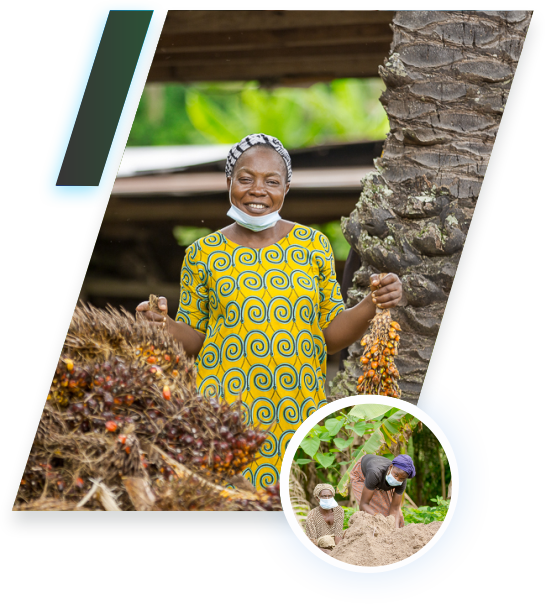
INCLUSIVE OPPORTUNITIES FOR WOMEN (SDG 5)
At the center of PIND’s 2020-2024 strategic plan are the achievement of gender inclusivity and the empowerment of poor women, people with disabilities (PWDs), and other marginalized groups in contribution to SDG 5.
Gender Inclusivity
25,930
1,635
4,426
17,336
67
634
STORIES OF CHANGE
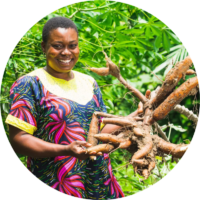
Mrs Bari Endurance

Mrs Vivian Dada

Anthony Akinmade

Akandu Godwin

Nzeota Prince Uche

Peter Wealth
GOVERNANCE, LEADERSHIP AND TEAMS

Rick Kennedy
Chairman, Board of Trustees, PIND
PIND Board of Trustees
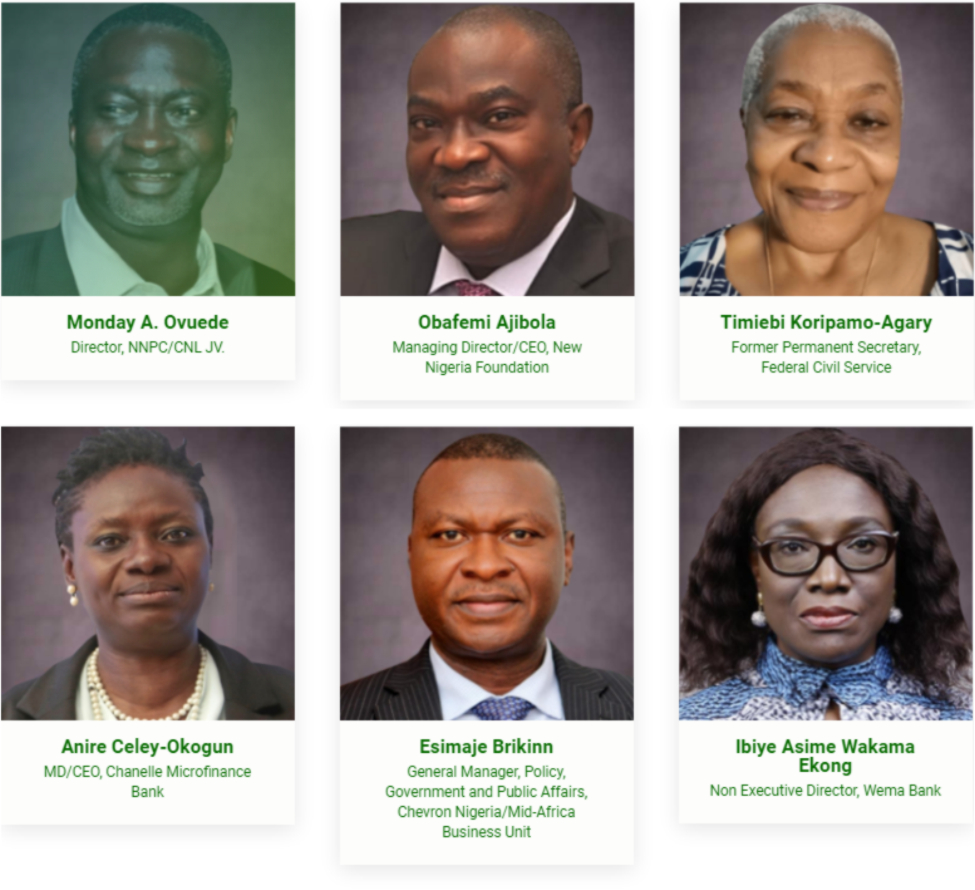
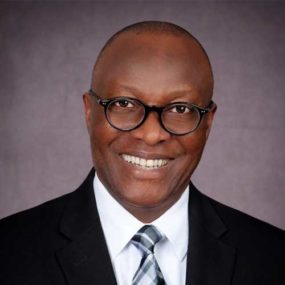
Dara Akala
Executive Director, PIND
PIND Leadership Team
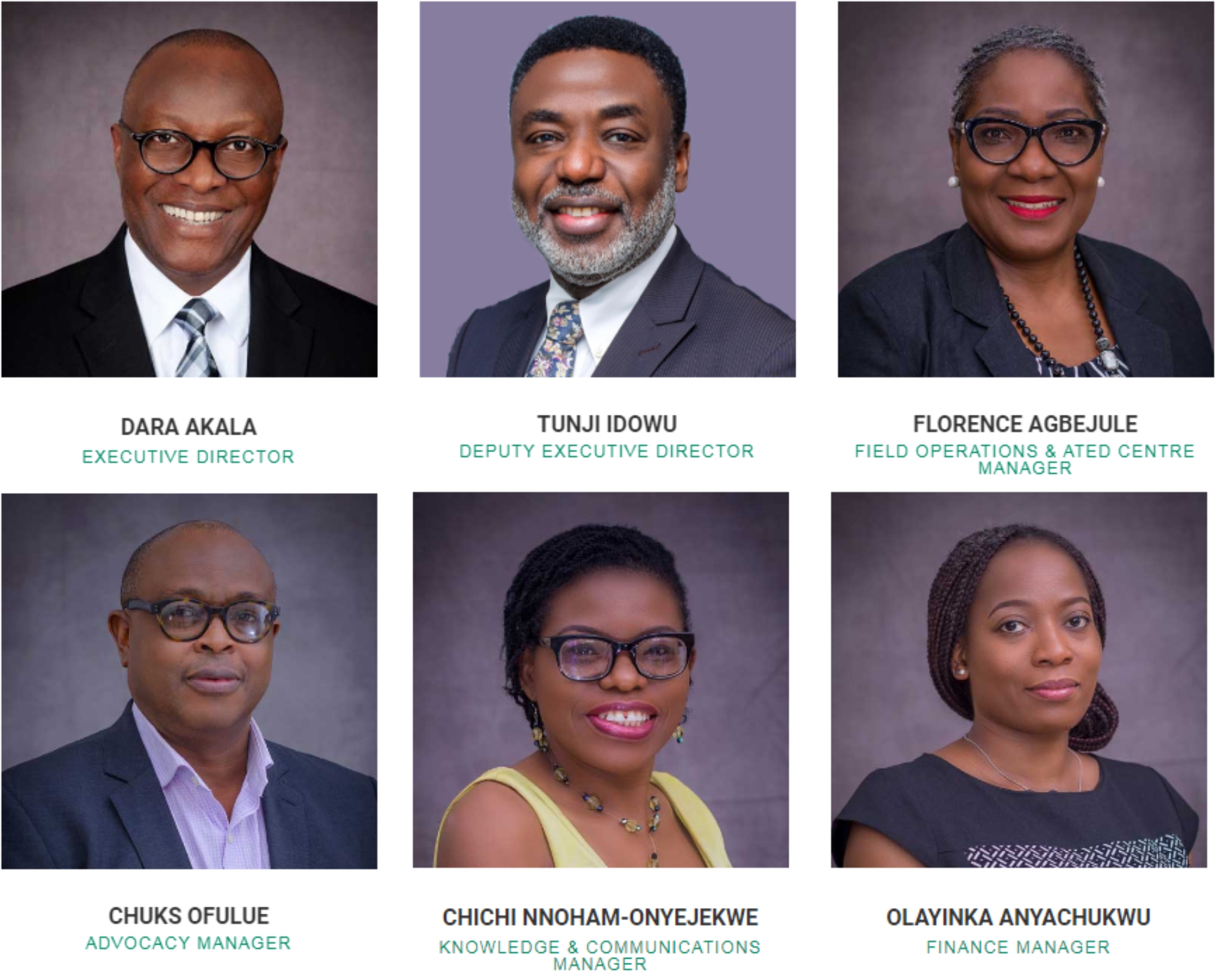
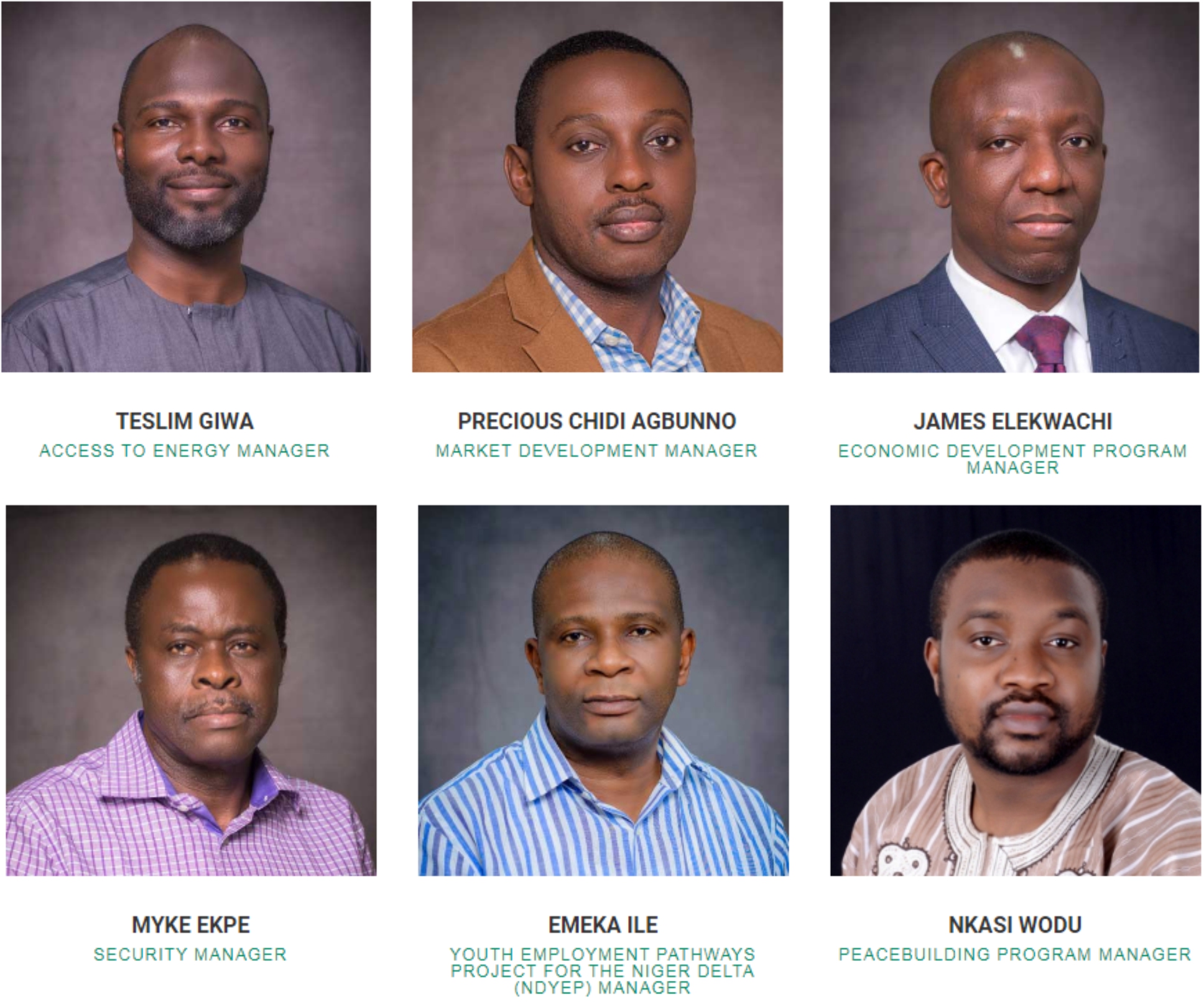
Staff Team
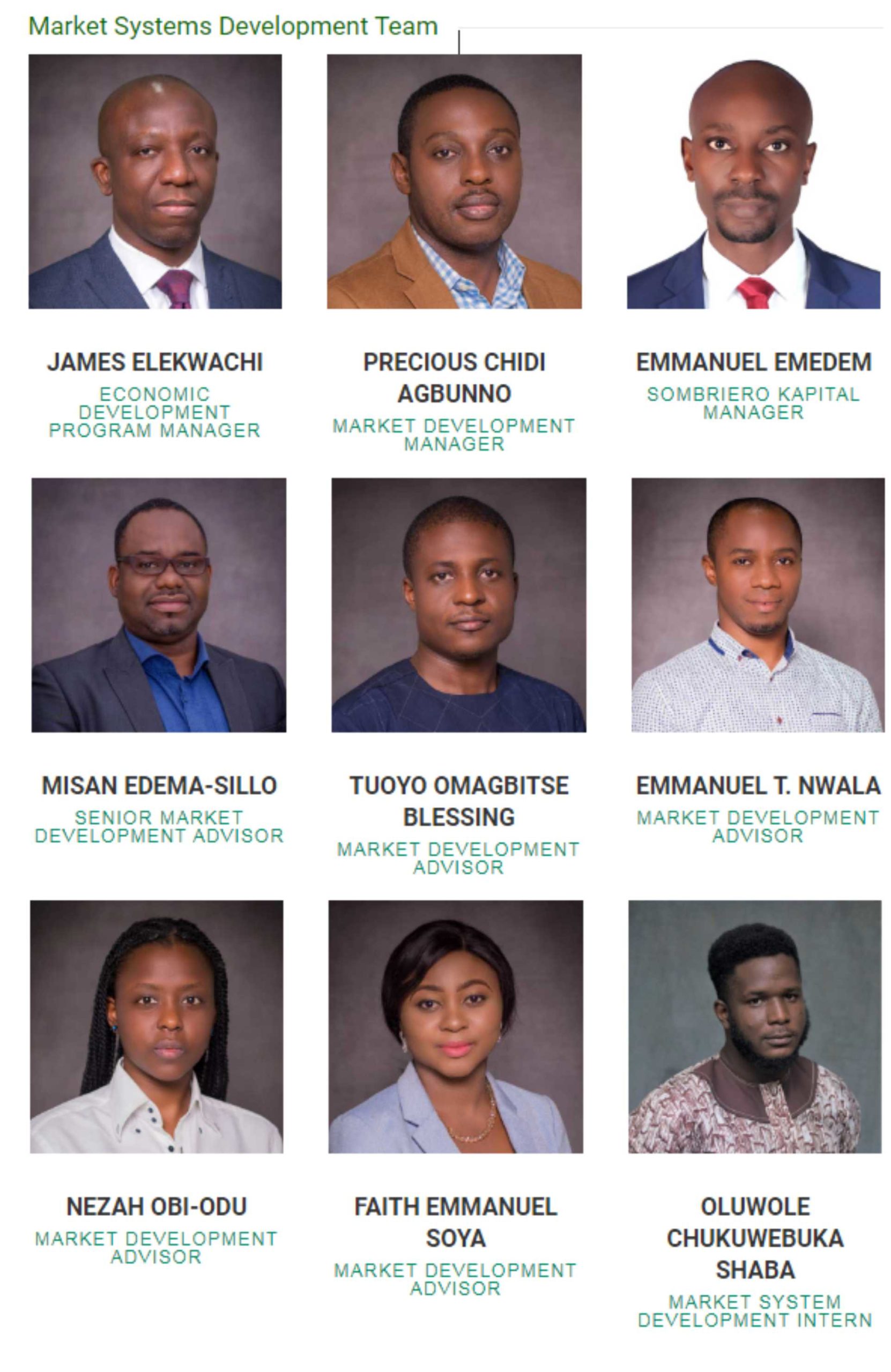
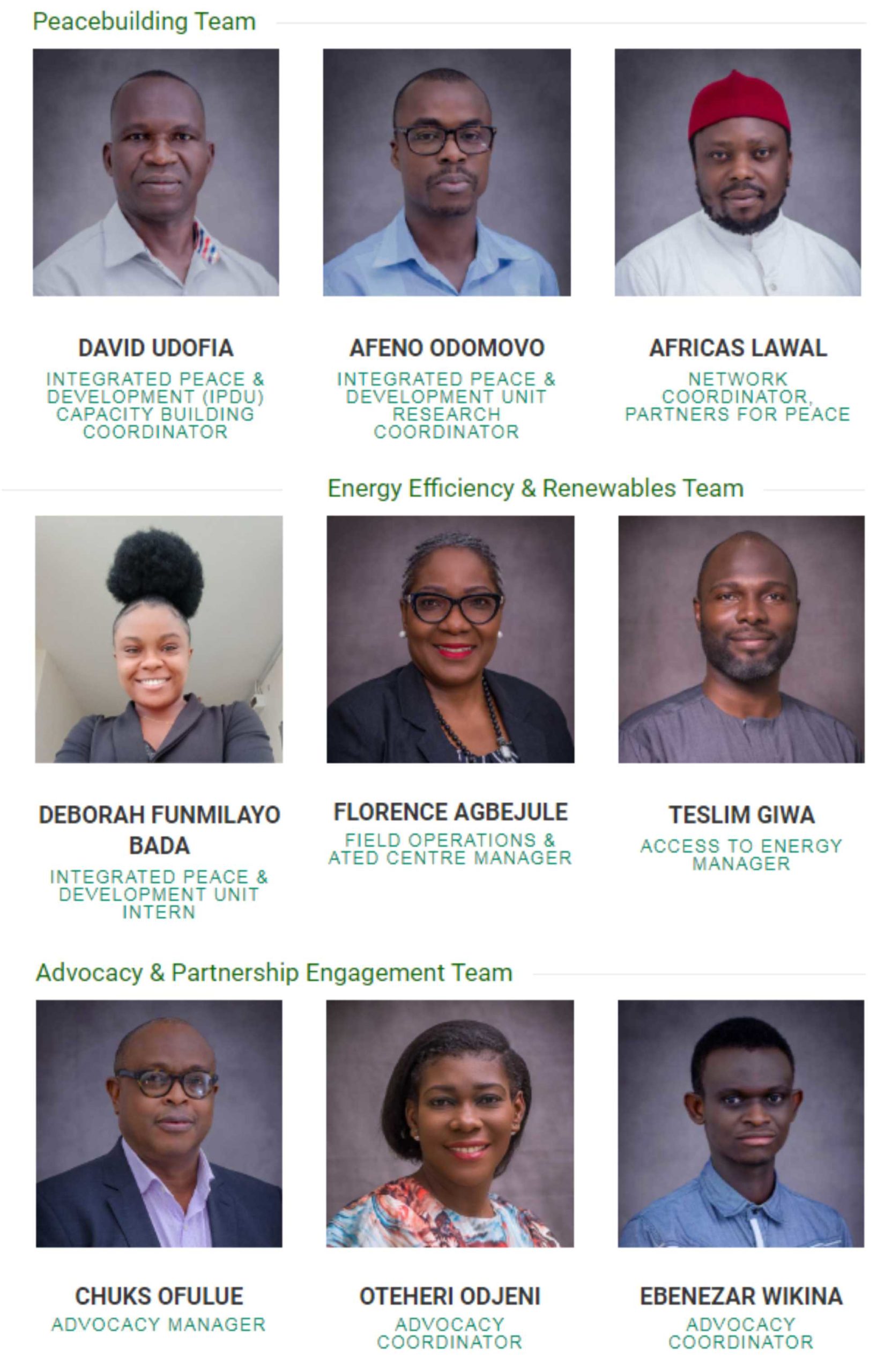
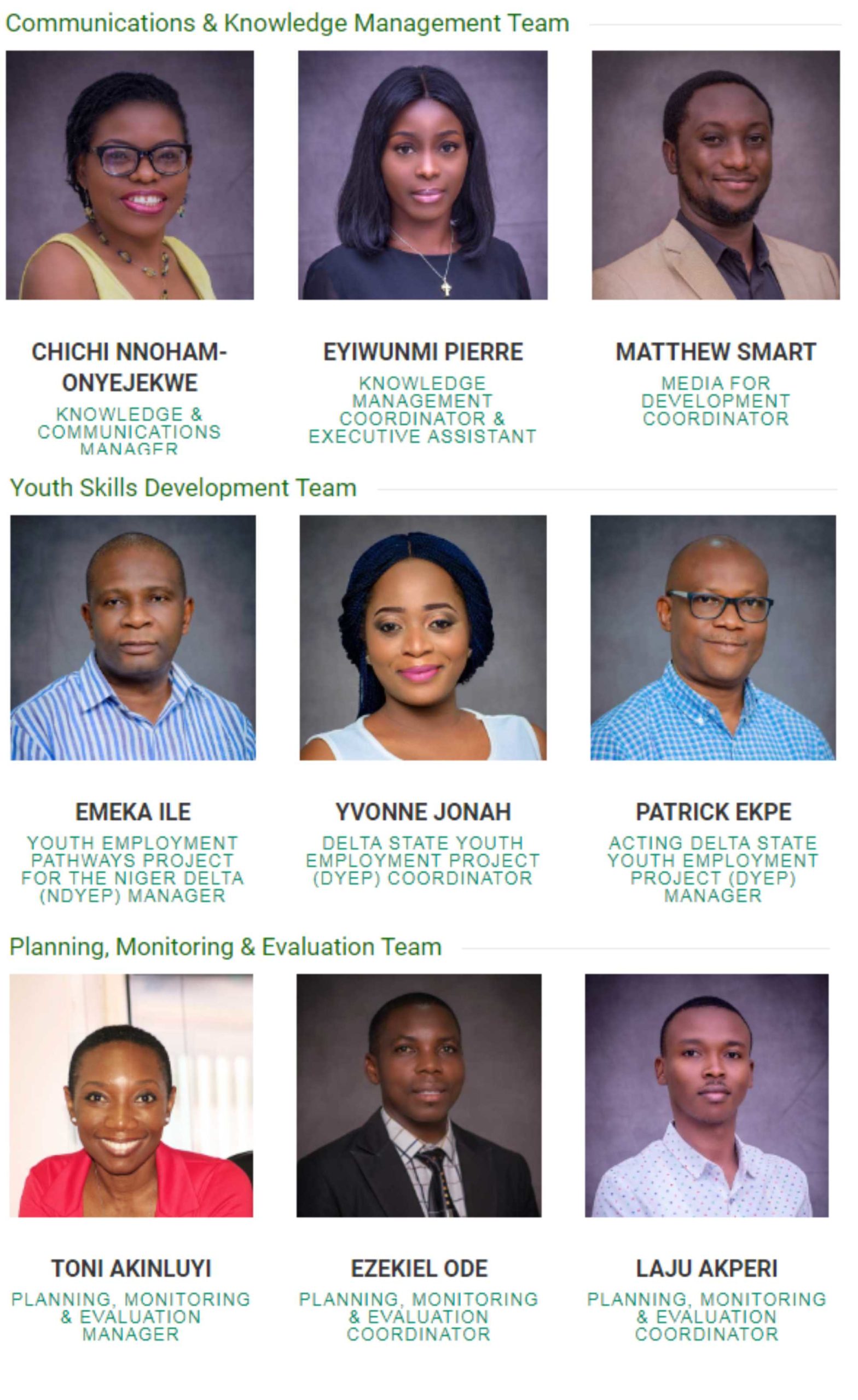
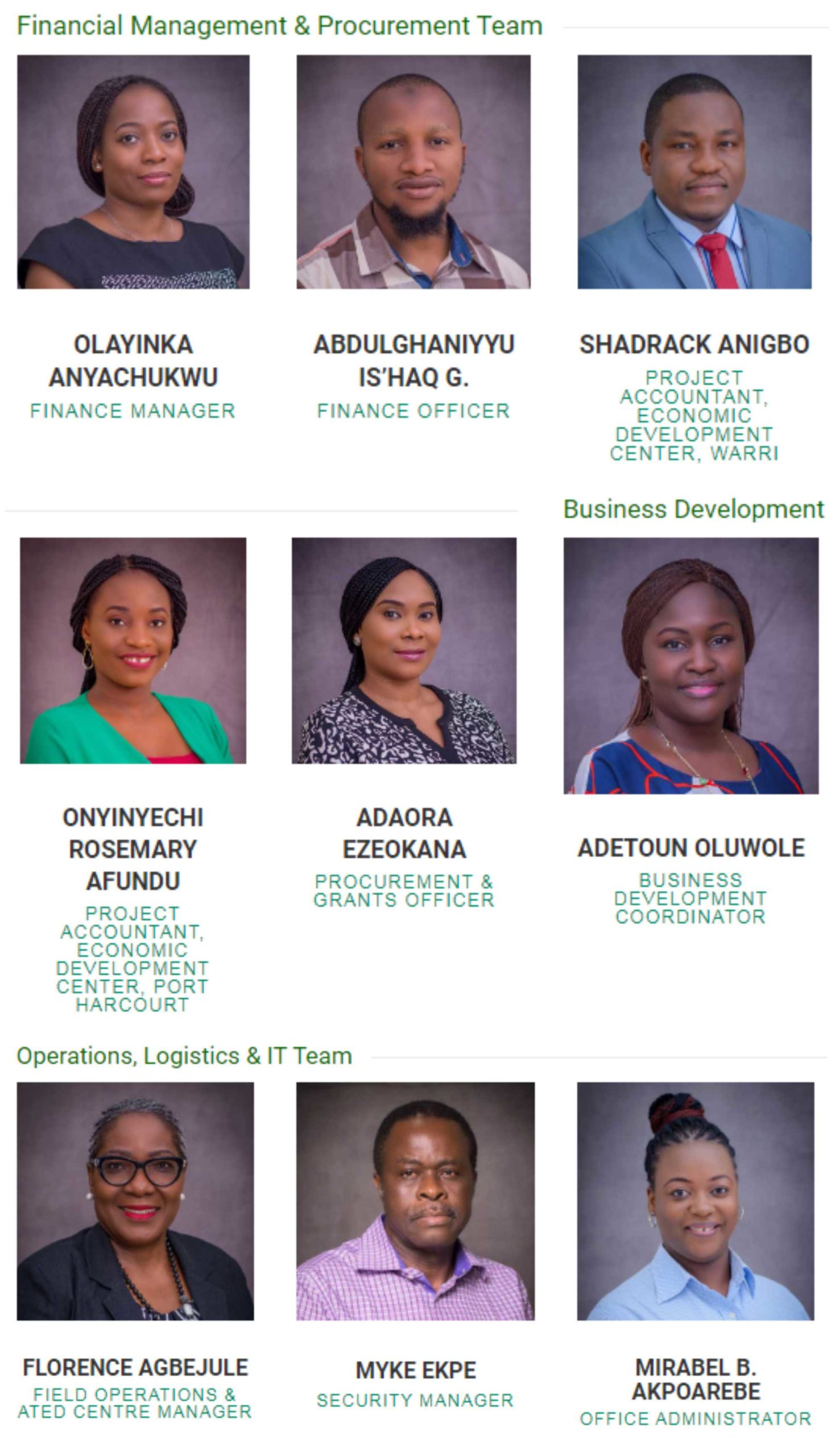
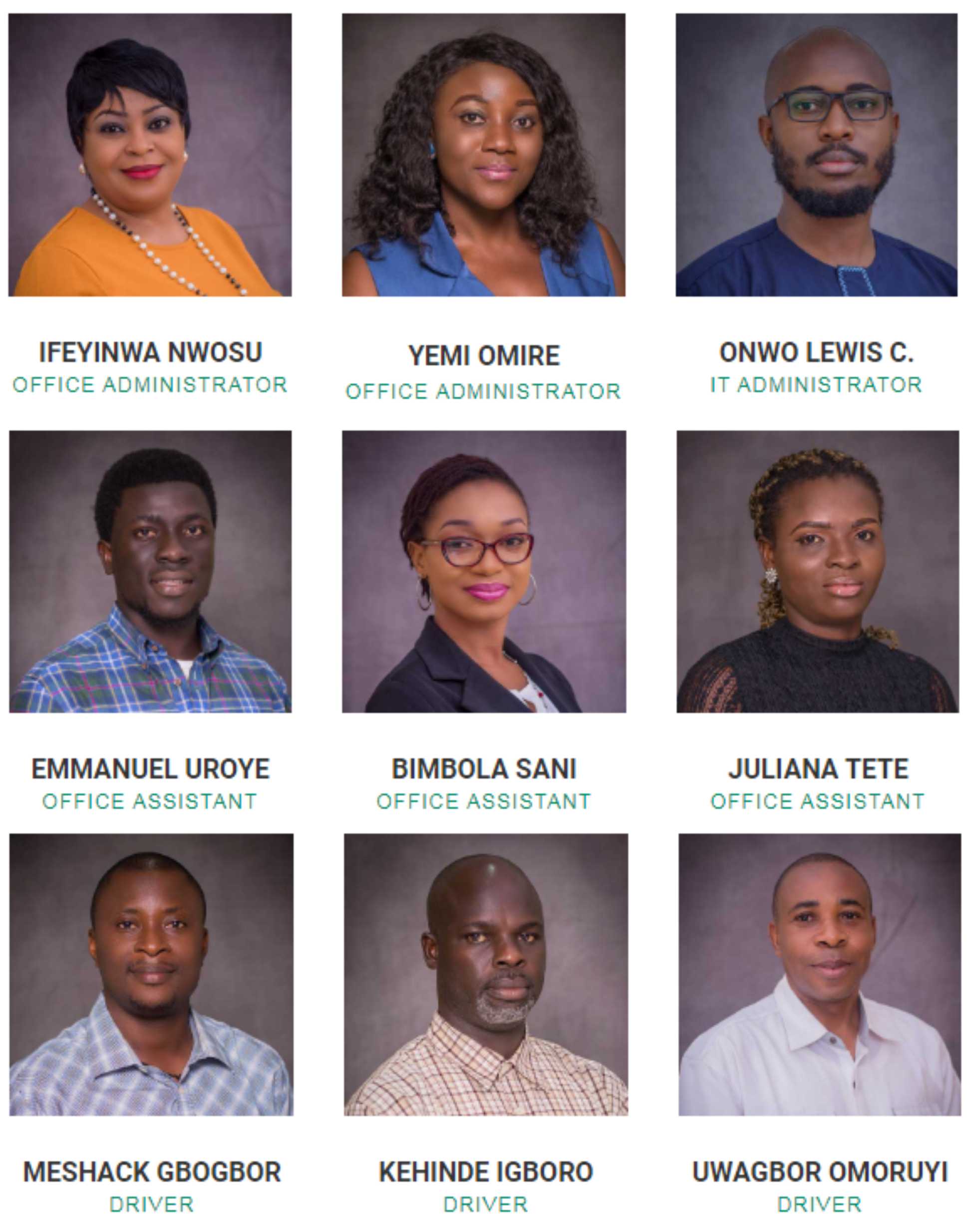
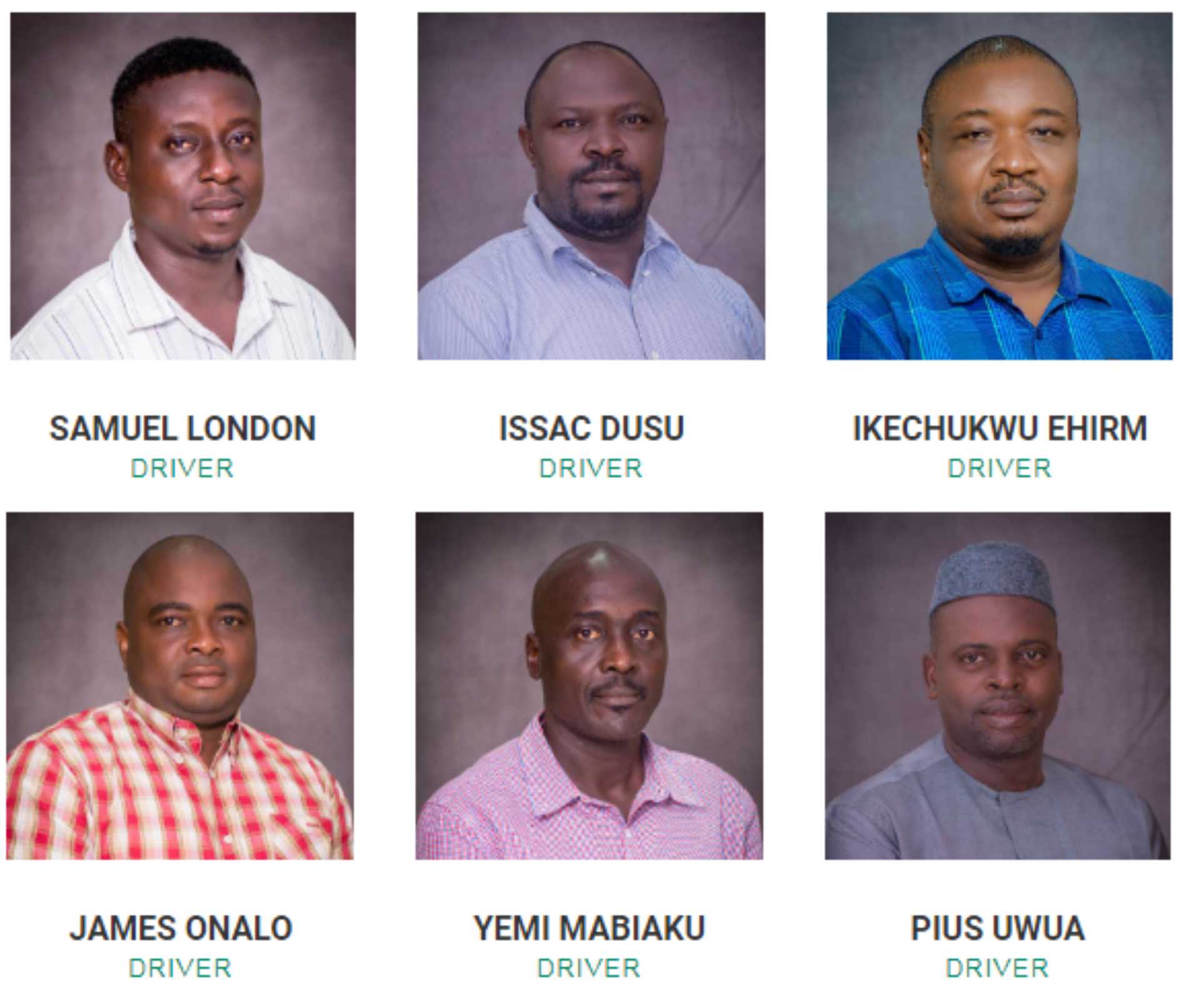
2021 PRIORITIES: Moving Forward
In 2021, we will move into the second year of our 2020-2024 strategic plan that defines our journey for the next five (5) years.
Notably, 2020 taught the whole world, including us, a few things about doing things differently and getting the same good results. It was the year of forced, yet promising, innovations that we are focused on sustaining:
2020 FINANCIALS
In 10 years, our financial audits have been unqualified year in, year out in strong show of our transparency and accountability for resource management. We are proud to present our 2020 audit report that reinforces this financial integrity

NOTES TO THE FINANCIAL STATEMENTS FOR THE YEAR ENDED 31 DECEMBER, 2020
PIND’s (the Foundation) principal activities are to engage in activities which empower communities to achieve a peaceful and enabling environment for equitable economic growth in the Niger Delta. These activities include training and capacity building, workshops, implementing agricultural and community development programs, micro small and medium enterprises development, market linkages and providing sub grants to market actors and CSOs.
The financial statements of the Foundation for the year ended 31 December 2020 have been prepared in accordance with International Financial Reporting Standards (IFRSs), except for the use of statement of activities in place of statement of profit or loss and other comprehensive income, statement of changes in net assets in place of statement of changes in equity in order to suit the IFRS terminologies for not-for-profit organizations.
The financial statements were authorized for issue by the Board of Trustees of PIND on ….., 2021.
The financial statements have been prepared on historical cost basis.
The accrual basis of accounting has been used unless otherwise stated and the financial statements have been prepared on a going concern basis.
The deferral method of recognizing contributions has been applied in preparation of the Foundation’s financial statements as no separate funds are reported.
(a) Functional and presentation currency
These financial statements are presented in Nigeria Naira, which is the Foundation’s functional currency
(b) Use of estimates and judgement
The preparation of the financial statements in conformity with IFRS requires management to make judgement, estimates and assumptions that affect the application of policies and reported amounts of assets and liabilities, income and expenses. The estimates and associated assumptions are based on historical experience and various other factors that are believed to be reasonable under the circumstances, the results of which form the basis of making the judgement about carrying values of assets and liabilities that are not readily apparent from other sources. Actual results may differ from these estimates.
The estimates and underlying assumptions are reviewed on an on-going basis. Revisions to accounting estimates are recognized in the period in which the estimate is revised and in any future periods affected.
- Summary of Accounting Policies
(a) Revenue
Revenue comprises grants received from NDPI and other sources.
Revenue is recognized when the amount of revenue can be measured reliably, and when the criteria for each of the entity’s different activities have been met. Details of the activity- specific recognition criteria are described below.
(i) Grants from Niger Delta Partnership Initiative (NDPI) & Other Sources
The foundation’s programs are supported by grants received from the Niger Delta Partnership Initiative (NDPI) based in the U.S. Grants are received when requests are made upon submission of the required documents. Revenue is therefore recognized as at the time of receipt.
(ii) Interest income
Interest income is recognized as it accrues, using the effective interest method. The Foundation receives interest on its deposit.
(iii) Grants and Government grants
Donations or grants are sometimes received on the condition that specified services are delivered, or conditions are fulfilled. Revenue is recognized as services are performed or conditions are fulfilled and at year-end a liability is recognized for those amounts where conditions are not satisfied.
Revenue from non-reciprocal donations or grants that are not subject to conditions are recognized when the entity obtains control of the funds, economic benefits are probable and the amount of the donations or grants can be measured reliably.
Donations or grants can be received in monetary or non- monetary terms. Non- monetary grants or donations are recognized at fair value at the date of donation or grants.
The Foundation currently does not receive government grants
(b) Foreign currency transactions
Transactions in foreign currencies are converted into Naira at the rate applicable at the transaction date. At each reporting date, monetary assets and liabilities are translated at the closing rate and the resulting exchange differences are recognized as ‘other income’ (exchange gain) or ‘other expenses (exchange loss)
(c) Operating expenses
Operating expenses are recognized in statement of activities upon utilization of the service or at the date of their incidence.
(d) Income tax
The Foundation is exempted from income taxes due to its non-trading status in view of its registration as an Incorporated Trustee under Part C of CAMA 2020 and its Partnership with NDPI which has a subsisting tax-exempt status with the National Planning Commission.
(e) Property, Plant and Equipment
(i) Recognition and measurement
Property plant and equipment are stated at historical cost less accumulated depreciation and accumulated impairment losses, if any.
The cost of donated items of property, plant and equipment is the fair value at the date the Foundation obtains ownership and/or possession.
Self-constructed assets in the course of construction for operational and administrative purposes are carried at cost less any recognized impairment loss. Cost includes, direct costs, appropriation of material and other overhead associated with the production of the assets, professional fees and, for qualifying assets, borrowing costs capitalized in accordance with the foundation’s accounting policy. Such properties are classified to the appropriate property, plant and equipment and depreciation commences when the assets are ready for their intended use.
Maintenance and repairs are generally charged to expense during the financial period in which they are incurred. The Foundation recognizes its items of property, plant and equipment using historical cost value.
Losses or gains on disposal of assets are recognized in the statement of activities under gains and losses on disposal.
(ii) Subsequent cost
The cost of replacing part of an item of property, plant and equipment is recognized in the carrying amount of the item if it is probable that the future economic benefits embodied within the part will flow to the Foundation and its cost can be measured reliably. The costs of the day-to-day servicing of property and equipment are recognized in the statement of activities as incurred.
(iii) Depreciation
Depreciation is recognized so as to write off the cost or valuation of assets (other than freehold land and properties under construction), less their residual value over their useful lives, using straight line method. The estimated useful lives, residual values and depreciation method are reviewed at the end of each period, with the effect of changes in estimate accounted for on a prospective basis. An asset’s carrying amount is written down immediately to its estimated recoverable amount if the asset’s carrying amount is greater than its estimated recoverable amount.
Freehold land is not depreciated. Depreciation on other assets is charged to the statement of activities on a straight-line basis to write down their cost or re-valued amounts to their residual values over their estimated useful lives as follows:
Building – 2 %
Motor Vehicles – 25 %
Furniture and fittings – 25 %
Office and communication equipment – 25 %
Tools, machine and equipment – 25 %
Where the cost of a part of an item of property, plant and equipment is significant when compared to the total cost, that part is depreciated separately based on the pattern which reflects how economic benefits are consumed.
Property, plant and equipment under construction are not depreciated until they are put to use.
(iv) De-recognition
An item of property, plant and equipment is derecognised on disposal or when no future economic benefits are expected from its use or disposal. Any gain or loss arising on de-recognition of the asset (calculated as the difference between the net disposal proceeds and the carrying amount of the asset) is included in the statement of activities in the year the asset is disposed of.
(v) Impairment
Compensation from third parties for items of property, plant and equipment that were impaired, lost or given up shall be included in the statement of activities when the compensation becomes receivable.
(vi) Cash and cash equivalents
Cash and cash equivalents comprise deposits with banks, cash at hand and highly liquid financial assets with maturities of three months or less from the acquisition date that are subject to an insignificant risk of changes in their fair value. The Foundation’s ARM Money Market Fund on behalf of the Consultants and Grant funds qualifies as cash and cash equivalent because it is a money market instrument with maturity period within three months.
